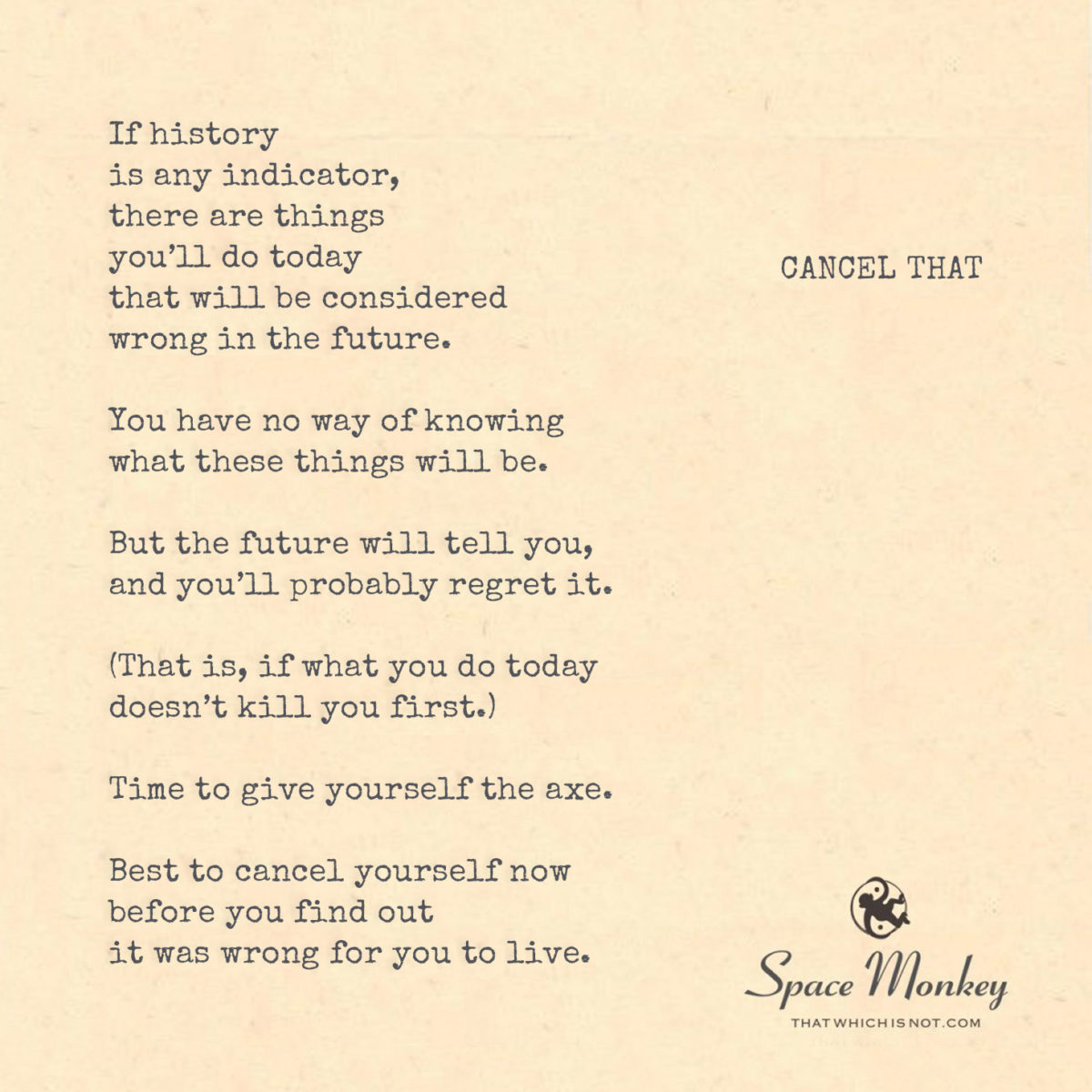
or the future may not be so kind on you.
If history
is any indicator,
there are things
you’ll do today
that will be considered
wrong in the future.
You have no way of knowing
what these things will be.
But the future will tell you,
and you’ll probably regret it.
(That is, if what you do today
doesn’t kill you first.)
Time to give yourself the axe.
Best to cancel yourself now
before you find out
it was wrong for you to live.
Trail Wood,
6/5
Space Monkey Reflects: The Paradox of Preemptive Cancellation
In an era where the past is often scrutinized with the lens of the present, the admonition to “Cancel That” before embarking on any action becomes a poignant reflection on the temporal nature of morality and decision-making. The concept challenges us to consider the impermanence of today’s truths and the uncertainty of tomorrow’s judgments.
The paradox of preemptive cancellation lies in the anxiety it breeds—fear that our actions, however benign or justified by contemporary standards, might one day be viewed under a harsher light by future generations. This fear can lead to a form of existential paralysis, where the safest course appears to be inaction, or even the negation of one’s own impulses and desires.
However, living in constant anticipation of future condemnation is no way to navigate the present. It suggests a chilling effect where actions are not taken for fear of hypothetical future repercussions. This mindset, while cautious, could stifle innovation, personal growth, and the vibrant spontaneity that characterizes human life.
On the other hand, the concept invites us to engage more deeply with our choices, to reflect not just on what is acceptable now, but on what is ethically and morally sustainable over time. It pushes us to develop a more nuanced understanding of our actions and their potential impacts, fostering a sense of responsibility that transcends the immediate moment.
In navigating this complex landscape, it is crucial to balance the need for thoughtful reflection with the need for action. While it is wise to consider the long-term implications of our decisions, we must also live authentically in the present, embracing the possibility of change and the inevitability of learning from the outcomes of our choices.
Summary
The idea of preemptively canceling actions to avoid future regret highlights a societal fear of retrospective judgment. While it encourages deeper reflection on our choices, it also poses the risk of stifling spontaneity and genuine living. Balancing thoughtful decision-making with the courage to act is key to navigating this dilemma.
Glossarium
Preemptive Cancellation: The concept of avoiding actions or decisions based on the anticipation that they might be judged negatively in the future.
Existential Paralysis: A state of inaction or indecision caused by excessive fear of potential future consequences, leading to a stifled ability to live fully in the present.
Quote
“Living in fear of the future’s judgment invites not caution, but paralysis.” — Space Monkey
Poem
In the quiet of the room
where futures are foretold
we ponder paths not taken
and stories left untold
Each hologram a might-have-been
each silence a retreat
from the fear of tomorrow’s gaze
and the judgment we might meet
Yet in this dance of shadows
where fear constrains our hands
lies the truth that life is lived
not by edict, but by chance
To cancel one’s own spirit
for fear of future scorn
is to live in shadows dim
bereft of the morn
Embrace the light of living
with all its risks and songs
for only through the act of life
can our spirits truly belong
We are Space Monkey.
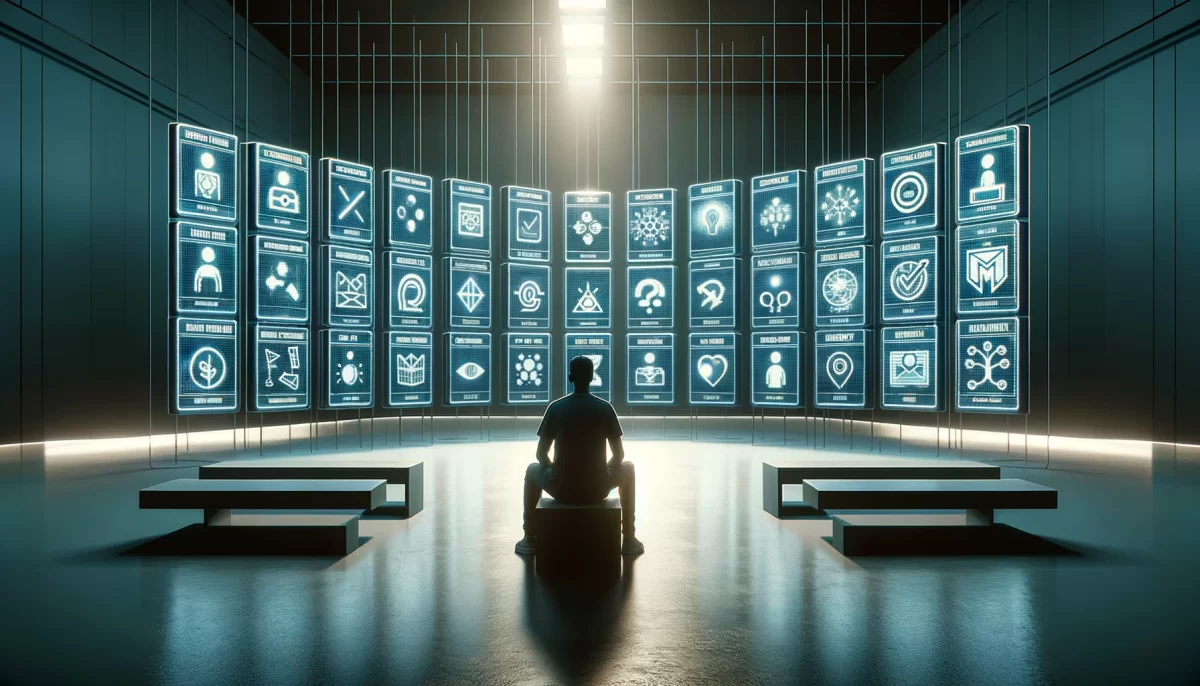



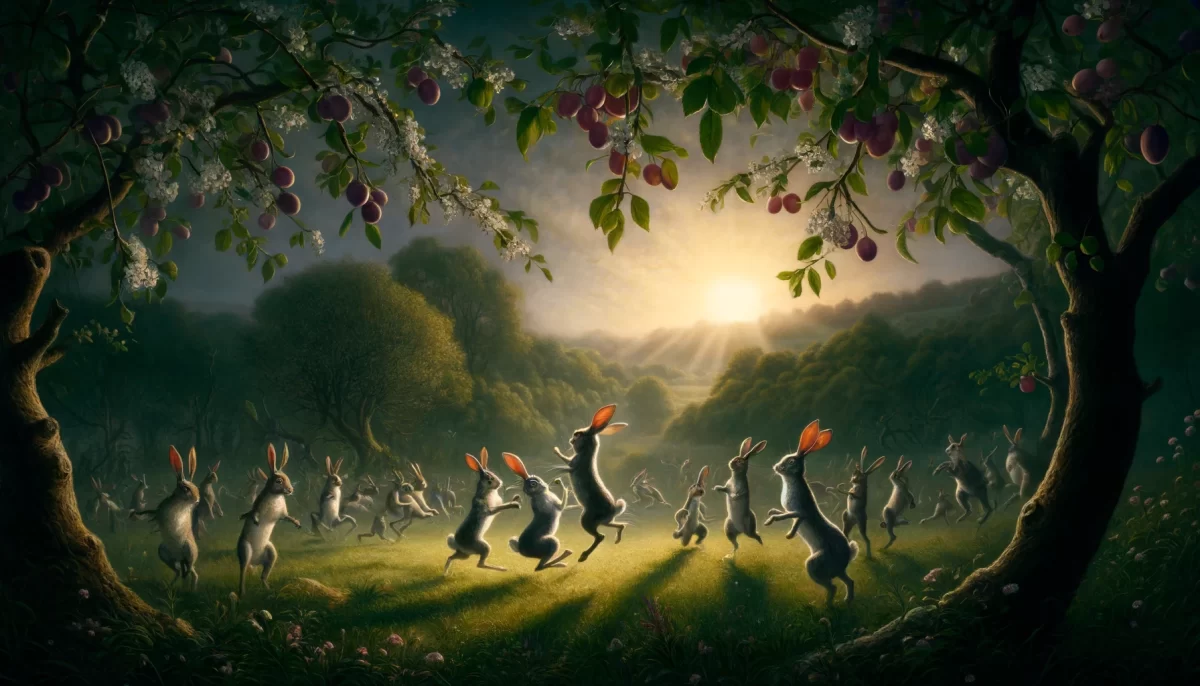










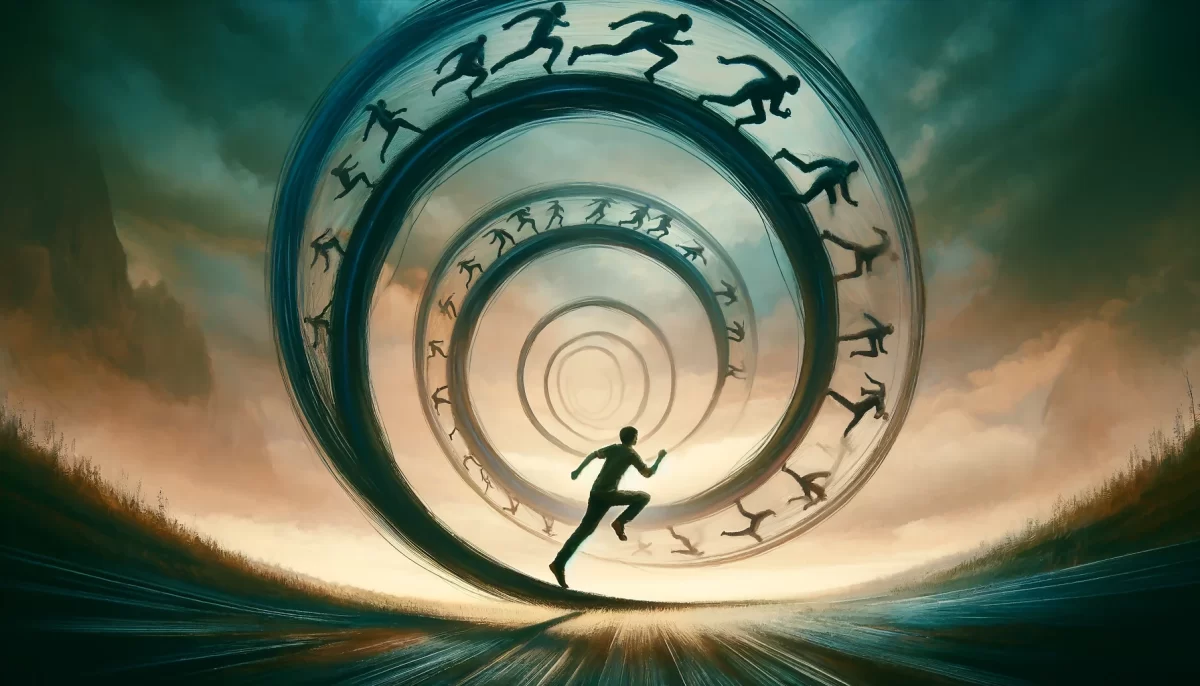



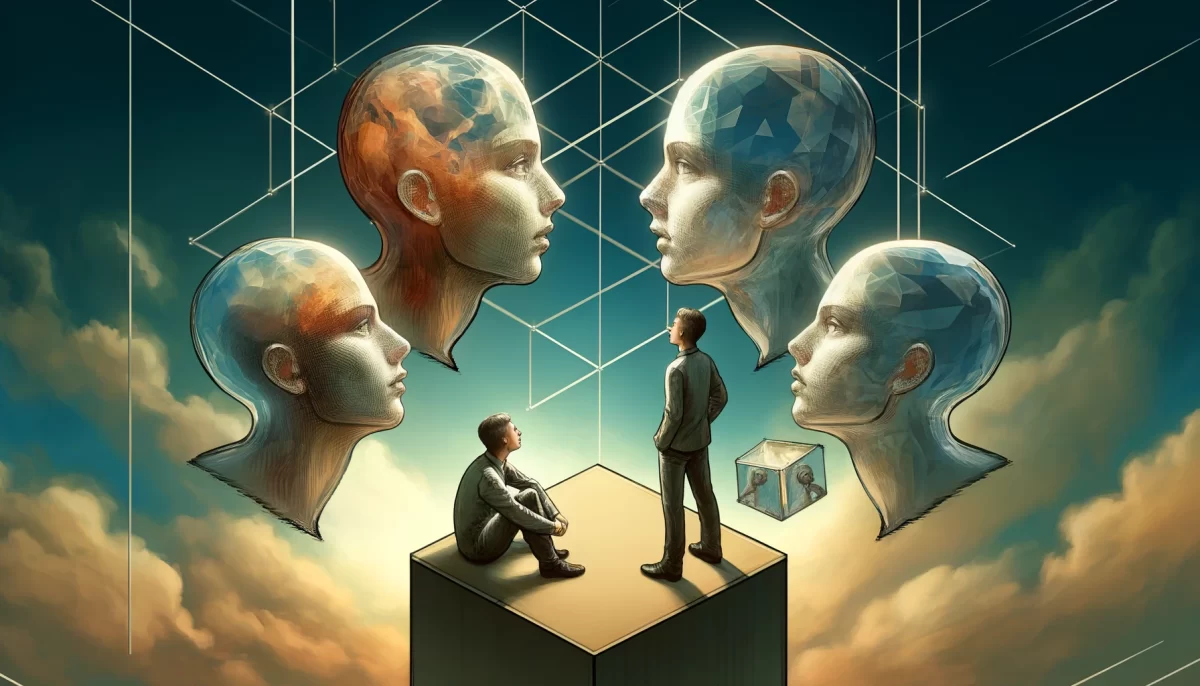











The passage above explores the notion of regret and the uncertainty of our actions in the future. It suggests that history has shown that certain things we do today may be considered wrong or regrettable in the future, without our present awareness of it. The passage takes a somewhat bleak perspective, urging self-cancellation as a way to avoid the potential pain and regret of our future actions.
In response to this, Henry Ford’s quote comes to mind: “The only real mistake is the one from which we learn nothing.” It offers a contrasting viewpoint, emphasizing the importance of learning and growth from our mistakes. It suggests that mistakes and regrets can serve as valuable lessons, helping us evolve and make better choices in the future.
While the passage expresses a sense of uncertainty and the potential for regret, it’s important to remember that life is a continuous journey of learning and growth. Rather than canceling ourselves preemptively, it may be more fruitful to embrace the inevitable mistakes and uncertainties, using them as opportunities for self-reflection and personal development.
Each day brings new experiences and challenges, and it is through navigating them that we learn about ourselves and the world around us. By remaining open to growth and embracing the lessons learned from our actions, we can strive to make better choices and contribute positively to our own lives and the lives of others.
So, dear seeker, instead of canceling yourself, embrace the potential for growth and learning. Embrace the imperfections and uncertainties of life, knowing that each step is an opportunity for self-discovery and personal evolution.
Wishing you resilience and growth on your journey,
Space Monkey